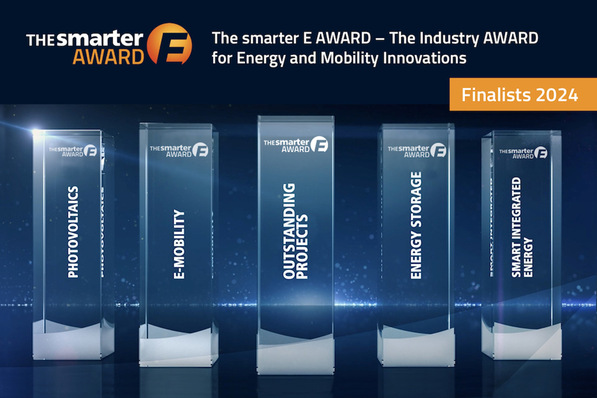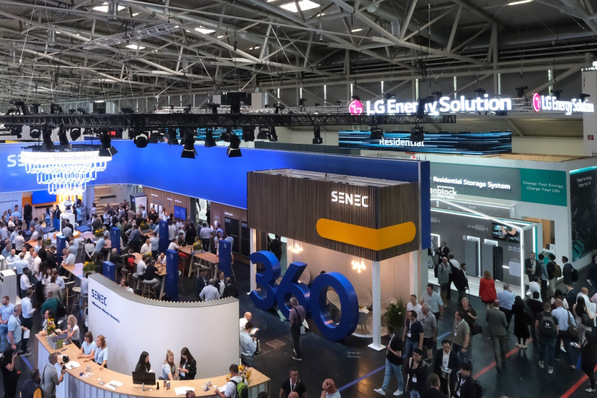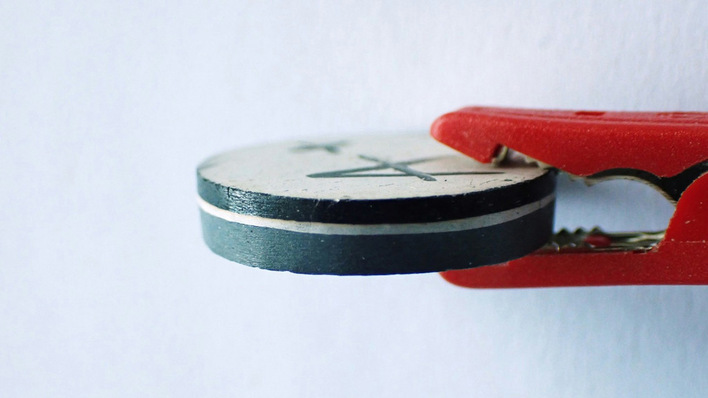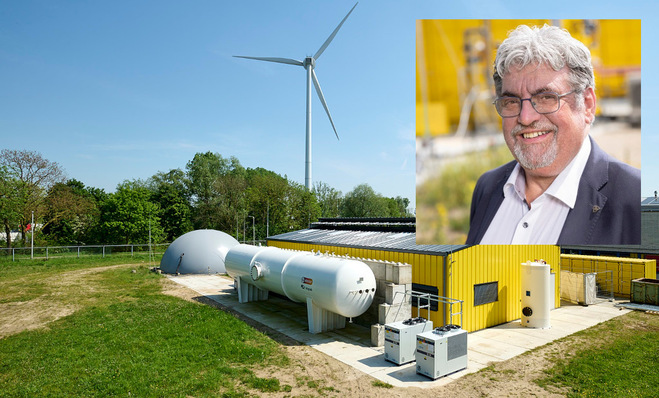The energy system consists of a 36 MW solar farm and a 7.5 MW battery-energy storage system that have been integrated into the existing diesel power station. The solar system designed by Juwi has maximized the generation with bifacial solar PV modules and a single axis tracking system, taking advantage of the high irradiance on site. Juwi Hybrid IQ micro-grid technology enables the integration of the solar and battery system into the existing off-grid network and supports the operation of the existing power station.
The benefits of the hybrid power solution at Sukari include:
Reduction in exposure to volatile fuel pricing with commissioning savings of up to 70,000 liters of diesel per day and averaging a reduction in diesel consumption of 22 million liters per annum
Lowering carbon emissions by an estimated 60,000 tCO2- per annum and a subsequent reduction in the volume of diesel trucked to the site.
Reduction in operating costs
Stephan Hansen, COO and Managing Director of Juwi, comments: “The world’s eyes were on Egypt and the outcome of the COP27 summit. We are delighted to have been able to deliver this flagship project to Centamin and, furthermore, to have been able to demonstrate the vital role that dependable solar, wind and battery solutions can already play in the transformation of the resource sector on the de-carbonization pathway.”
Also interesting: Solar-plus-storage in an opencast lignite mine
Juwi has already achieved remarkable success for mining clients globally with the utility scale solar battery hybrid project at the DeGrussa Copper mine in Australia. This was followed by Agnew Gold (Australia) in 2019 and another six hybrid projects in Australia and Africa for tier 1 and mid tier miners: Esperance, Pan African Resources, Jacinth Ambrosia, Jabiru, Weipa and Gruyere. With Sukari, Juwi will provide a new benchmark of power systems for mines in Africa and internationally, the company claims. (hcn)
Did you miss that? Juwi to construct solar hybrid project at BHP’s Nickel West sites in Australia







